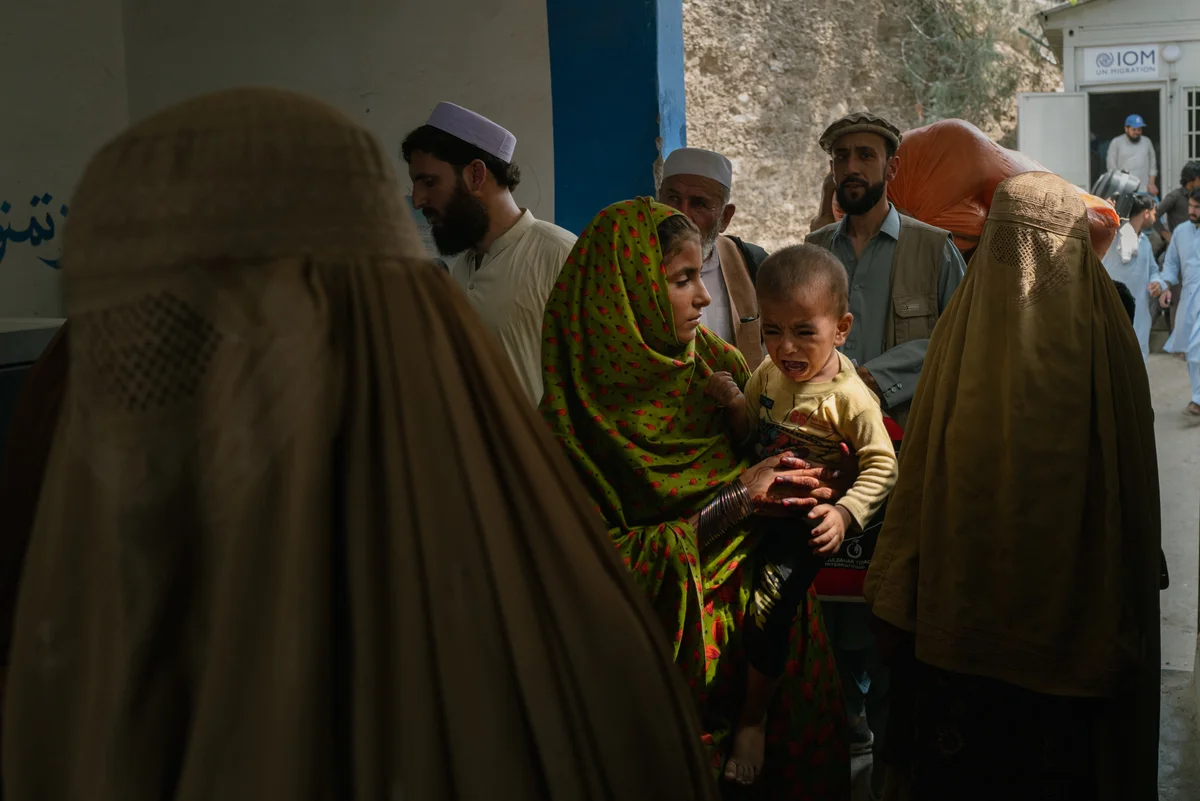Copyright independent

Last month, a pregnant woman was brought into a district hospital in an eastern Afghanistan province with severe bleeding and needed to be transferred to a better facility for treatment. However, with the country under a total internet blackout imposed by the Taliban, the authorities at the provincial hospital could not be contacted and she could not be given the urgent medical help she needed, according to a healthcare worker. She lost her newborn baby and suffered severe complications herself. Healthcare workers, speaking to a United Nations mission in the war-ravaged country, have outlined the heartrending impact of the Taliban-imposed, 48-hour internet blackout. The shutdown that started on 29 September coincided with a morality drive imposed by the hardline Islamist group’s supreme leader Hibatullah Akhundzada. “Without an ambulance or any way to call for help, they had to wait for hours for someone to travel to the provincial centre to deliver the message. The woman’s condition deteriorated, and her baby died,” a healthcare worker in Laghman province told the United Nations Assistance Mission in Afghanistan (Unama). According to the healthcare worker, the hospital ran out of critical medical supplies, including antibiotics and intravenous fluids. For an emergency resupply, they are required to speak to the provincial office but without any phone connection or internet, they could not reach out. “It was devastating. The phone call and internet blackout made me feel completely abandoned. As a health worker, I am trained to save lives, but without communication, I was feeling helpless. There was very little I could do. I started sending support staff by motorcycle to the provincial hospital to deliver urgent messages. Sometimes this took hours or even a full day,” she told the UN agency in Afghanistan. None of the workers are named due to concerns for their safety. At least nine children died during the blackout, healthcare workers told the Unama. The 12-page report, “Out of reach: The impact of telecommunications shutdown on the Afghan people”, described the impact of the shutdown on a country whose nearly 75 per cent of rural population relies heavily on telecommunication During those two days, Afghanistan’s healthcare and banking sectors, ambulances, emergency call lines, markets, small businesses, and offices were completely cut off from the people. Hospitals and nursing homes were hit the hardest. “Several healthcare workers spoke about preventable deaths which occurred because of the shutdown”, according to the report. Akhundzada, the top-most authority in the Taliban regime, ordered the ban allegedly to “prevent immorality”. While the Taliban authorities confirmed the fibre-optics ban, they did not comment on how the two-day outage affected the population. The Independent has reached out to them for a comment on the Unama report. Three children died due to lack of blood supply in Zabul province, a healthcare worker said. The staff at the hospital were unable to contact the children’s family to ask them to procure blood from blood banks. Five more children suffering from malnutrition also died in the remote Badghis province on the night of 29 September as the hospital was unable to contact doctors to treat them after facing understaffing issues. The actual death toll is expected to be much higher as the authorities have not collected all the data on deaths during the two days, including emergency calls that did not connect, Unama sources told The Independent. Healthcare workers said the emergency phone call lines fell completely silent and calls for ambulances stopped coming, leaving Afghans needing urgent medical care across the country in limbo. A man who experienced chest pain and feared he was having a heart attack said he could not make an appointment at a hospital and went there without one. “When he arrived, all the patient registration processes had to be done manually because there was no internet. As a result, the man waited many hours, in pain, for treatment,” the UN report said. Unama officials have recorded some of the most concerning stories from healthcare sectors. “The crisis was particularly grave for those suffering medical emergencies, and it was particularly grave for in a number of cases where at the end of the day, people died,” according to the UN officials. Additionally, several Afghan women who are now required to travel long distances with a male chaperone or mahram under the Taliban’s diktat, said they feared for their lives as they had to travel back alone when they could not contact a family member due to telecommunications being snapped. “I am a female and must be accompanied by a mahram... I could not contact my father, so I had to walk home alone. I was very scared when I was on my way home, but fortunately, I made it home safely after about one hour,” she told Unama. Another woman, working as a nurse in a remote area – one of the few sectors in which women were still allowed to work – said she faced the risk of losing her job when her family could not contact her. "As a woman working in a remote area, it is already difficult to be accepted by the communities and even by our own families. When the phones and internet stopped working, I was completely cut off from my family. My husband and other relatives became very concerned, the families do not permit women to work if they feel it’s unsafe or if there is no communication. I was at risk of losing my job just because I couldn't call to check in with my family,” she said. According to Unama officials, the country, marred by years of conflict, is not equipped to handle internet blackouts. “The entire country – from its health systems to its banking sector and small businesses – is substantially reliant on telecommunications to operate and provide essential services to the Afghan people,” they said. “It is the impact for a population that has been through decades of conflict and how that mental shift could be made but suddenly they are placed into some form of darkness and you don't really know where things are going to go,” said Fiona Frazer, representative of the UN High Commissioner for Human Rights (OHCHR) in Afghanistan since August 2019.



